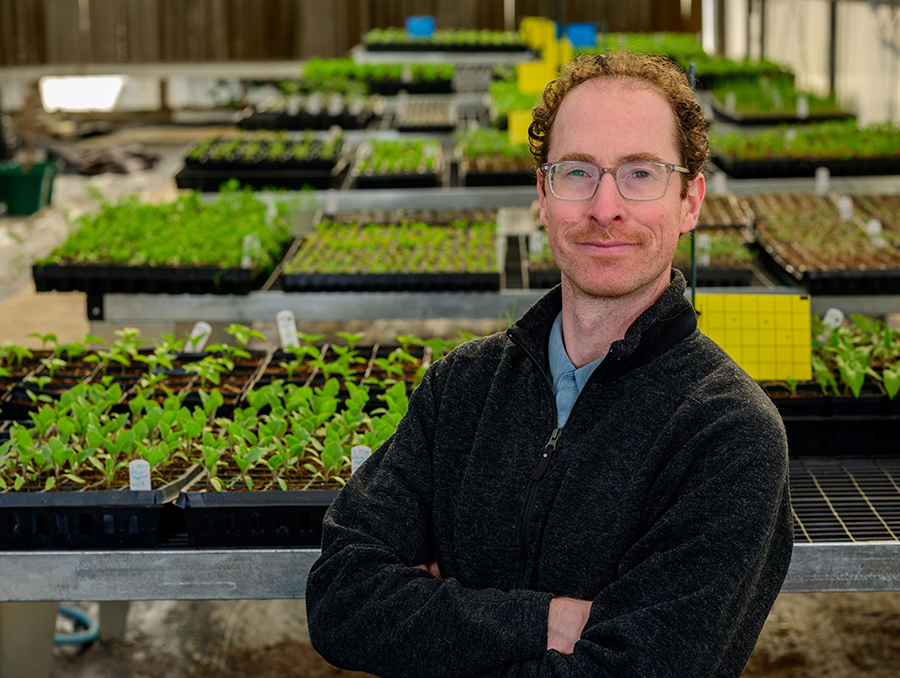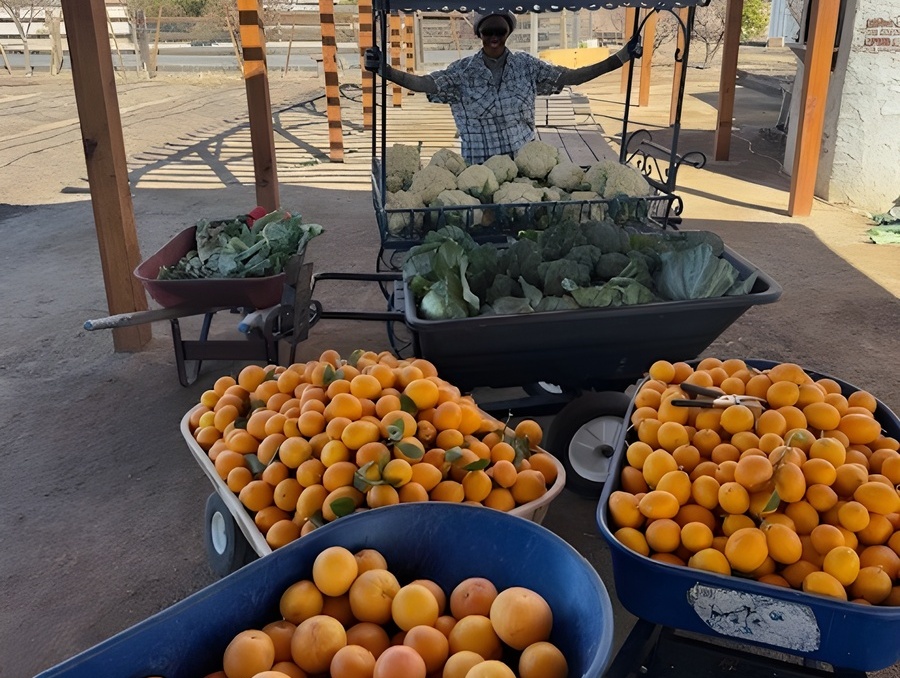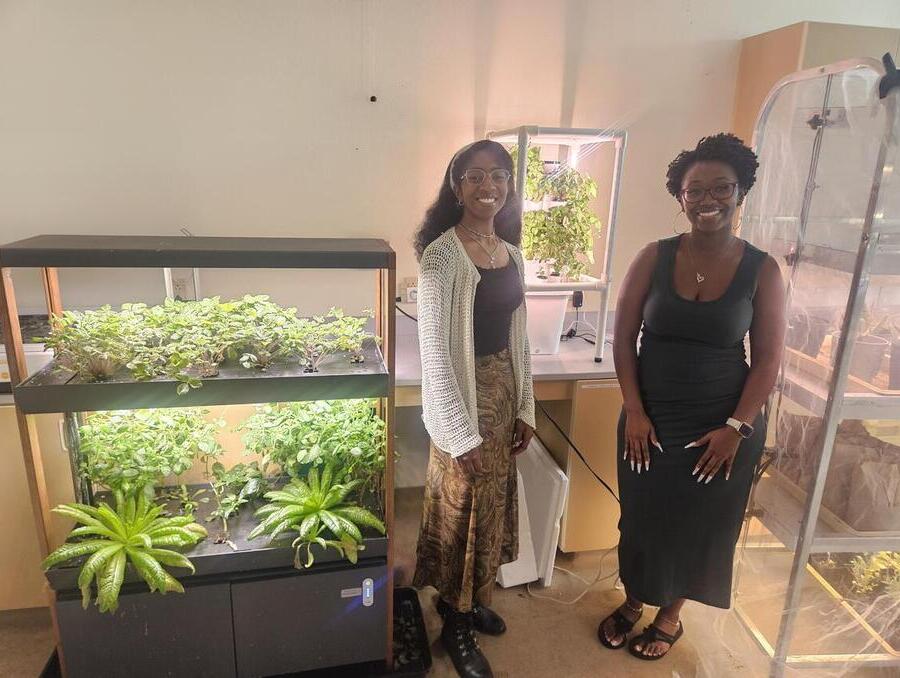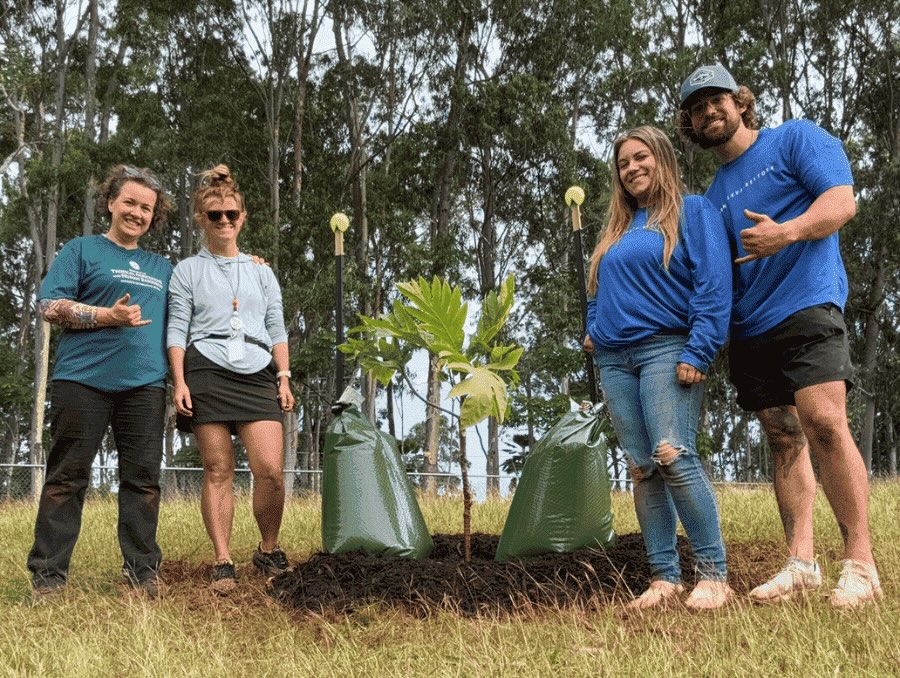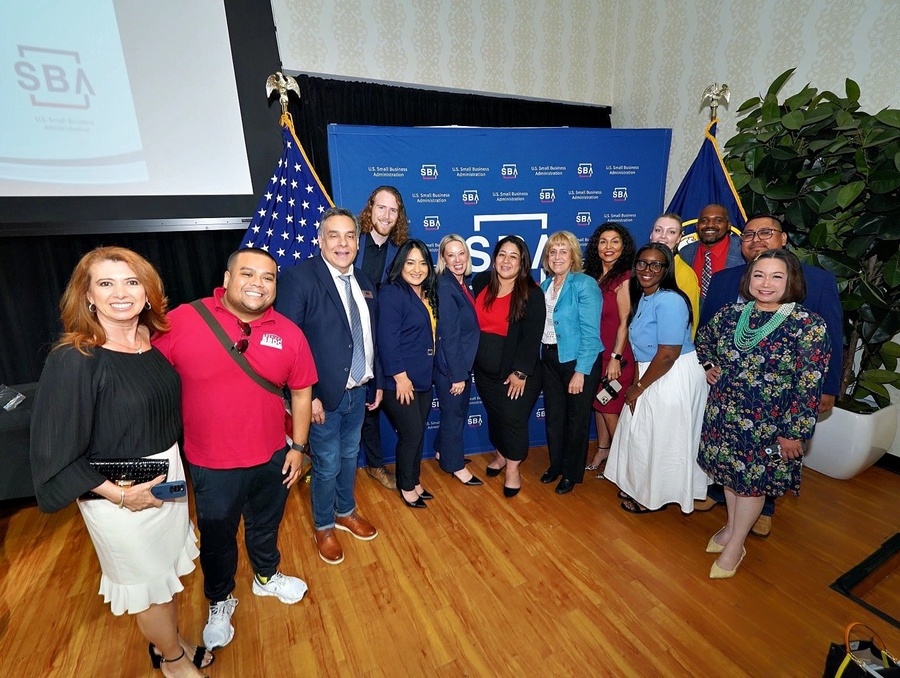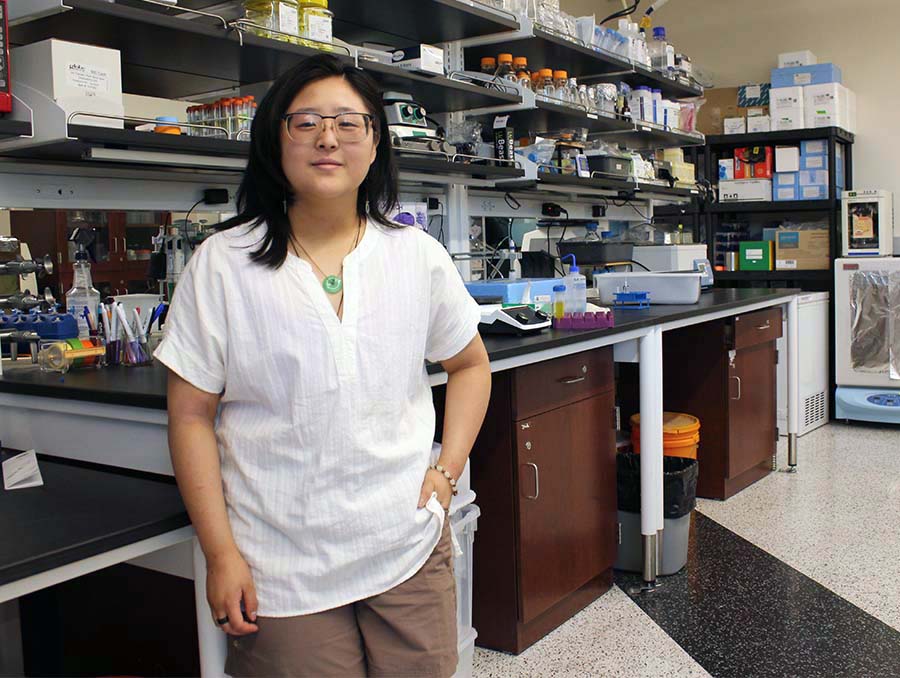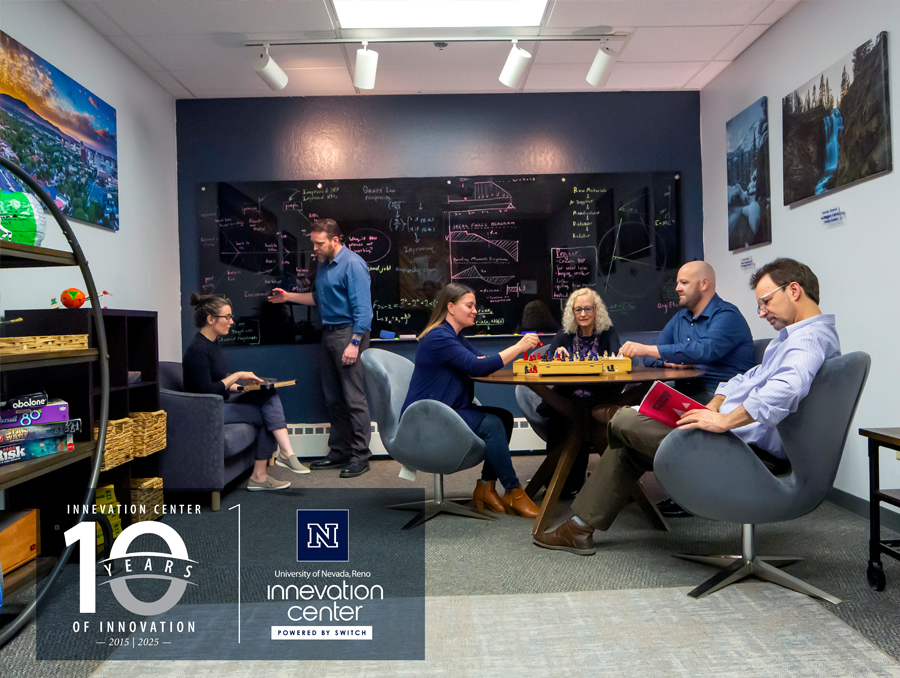Jordan Hosmer-Henner has worn many hats, trying to create positive change in communities – consulting and doing project management in Nairobi, and serving as a policy analyst in the Nevada Governor’s Office and as an urban economist to the City of Reno – as a few examples. Now, he has joined the University of Nevada, Reno’s Desert Farming Initiative, to serve as manager of food systems programs. The position focuses on improving the resiliency of Nevada’s food systems and increasing food security throughout the state through agricultural education and industry collaboration.
“This role really appealed to me because I’m always interested in helping people make connections and finding ways to make communities stronger and more resilient,” Hosmer-Henner said. “I want to make those connections with people who aren’t part of our programs yet – to help connect producers with information and resources, and to create connections and partnerships that overall strengthen our food systems.”
Jill Moe, director of the Desert Farming Initiative, which is part of the Experiment Station unit of the College of Agriculture, Biotechnology & Natural Resources, said that Hosmer-Henner’s breadth of experience makes him a perfect fit for the position.
“We’re very happy to have Jordan on board,” she said. “He has such a broad perspective – from urban economics to working abroad in very small rural agricultural communities. Jordan is great at connecting and has done a lot of work in policy, analysis and assessment. He will be valuable both as a boots-on-the-ground team member, working with people from diverse backgrounds, as well as at crunching numbers and creating strategies to strengthen our state’s food systems.”
In their 2019 report, the Nevada Governor’s Council for Food Security prioritized the need to strengthen the state’s food system and increase access to local food. According to the Nevada Department of Agriculture, the economic output of the state’s agriculture sector (ranching and farming) in 2020 was $787.8 million. State officials have identified it as a significant economic driver in the state that has potential for future growth. But, the Desert Farming Initiative’s food systems programs seek to steer that growth in strategic directions, helping communities to develop sustainable food systems to provide local sources of healthy foods and be less reliant on imports.
“While working with the Governor’s office, I was the liaison with the Department of Agriculture,” Hosmer-Henner said. “We were looking at how to maintain access to food in the state, and I saw how fragile the interconnectedness of our food systems really is. I hope to help strengthen those systems through my work here at the University to make access to food more sustainable for Nevada communities.”
Hosmer-Henner will be a member of the Initiative’s leadership team and serve as a key liaison between the Initiative and statewide partners to help fulfill the Initiative’s mission to advance climate-smart farming and food systems. He will help with strategic planning and fundraising; provide research and analysis; and manage food security initiatives, agricultural training, partnerships and grant awards. Examples of key roles he will be providing include:
- Assistance with launching a new Regional Food Business Center and providing technical assistance to Farmers Markets so that they can accept government benefits, such as SNAP (otherwise known as food stamps), to help residents who may be struggling with food security.
- Coordination of and support for agricultural training and mentorship, such as the Initiative’s Nevada Farm Apprenticeship Program, which provides aspiring small-scale farmers the opportunity to serve one-year paid apprenticeships to bolster their abilities to start and run a small-scale farming operation using climate-smart and organic practices.
- Helping to support the agricultural industry through other programs, such as the Nevada Farm Network, a grower-led initiative that helps them connect and share resources.
- Coordination of University student engagement at the Initiative, facilitating on-farm internships and leading class projects and engagement on the University farm.
Hosmer-Henner also did policy analysis and legislative work for the state’s Division of Environmental Protections and Department of Health and Human Services. He says graduating from college during the Great Recession and seeing the effects of climate change has helped steer his career path.
“I first came to Reno and discovered the high desert in 1997,” he said. “When I came back after being away for about 10 years, it was startling how different it was. It just became more and more apparent what change had occurred. Food, shelter, water – those are the basic necessities, right? Especially with climate change, we have to strategize and plan to make sure our communities have the ability to provide those things.”
While living in Nairobi and working with small farmers there, Hosmer-Henner said he was struck by their use of informal co-operatives known as “chamas.”
“’Chama’ in Swahili refers to an approach where, between you and your neighbors, you can provide for the group,” he explained. “It’s a commitment to have community interdependence, rather than a focus on being individualistic.”
Hosmer-Henner plans to employ that philosophy to help establish more sustainable food systems across the state. He also plans to look at helping the state to employ both new technologies and traditional practices to increase sustainability and food security.
“I’ve had an interest in history and anthropology and looked at how the land was managed before colonization,” he said. It was managed – by fire, perennial crops and other methods. I think we need to roll back some of our mistakes and identify systems that are more based on what the ecosystem is here, now.”
